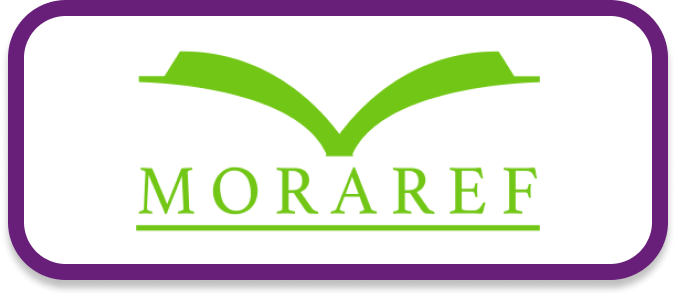PERBEDAAN PENGARUH MODEL PEMBELAJARAN STUDENT TEAMS ACHIEVEMENT DIVISION (STAD) DENGAN TEAMS GAMES TOURNAMENT (TGT) TERHADAP KEMAMPUAN BERPIKIR KRITIS PADA MUATAN PELAJARAN IPS SISWA KELAS 4 SD
Abstract
This study attempts to know whether there are significant differences between the learning model STAD (Student Team Achievement Division) with learning model TGT (Teams Games Tournament). This study using quasi experiments and research done by design The Statics Group Pretest - Posttest Design. To the method used in collecting data with sheets of observation and test. The technical data analysis in by conducting (uji-t) , aimed at to know and measuring the difference of the capacity to think critical of charge lessons social class. The result of research conducted use (uji-t), The sig obtained the results (2-tailed) of 0,046, because the sig (2-tailed) not greater than 0,05 (0,046 < 0,05). Then Ho denied said there is no significant differences between the application of the learning model STAD (Student Team Achievement Division) with the application of a model of learning TGT (Teams Games Tournament) against a student of critical thinking skills social class from students 4th grade and Ha accepted said there is the existence of a significant difference between learning model STAD (Student Team Achievement Division) with a model of learning TGT (Teams Games Tournament) against a student of critical thinking skills social class from students 4th grade. Based on the research and discussion can be concluded that there is a significant difference between the application of a model of learning STAD (Student Team Achievement Division) with a model TGT (Teams Games Tournament) on a social class studies from students.4th grade primary school.
Keywords
Full Text:
PDFReferences
Damayanti, D.S., Pengembangan Lembar Kerja Siswa (LKS) Dengan Pendekatan Inkuiriy Terbimbing Untuk Mengoptimalkan, Kemampuan Berpikir Kritis Peserta Didik Pada Materi Listrik Dinamis SMA Negeri 3 Purworejo Kelas X Tahun Pelajaran 2012/2013. RADIASI: Jurnal Berkala Pendidikan Fisika, 3(1), (2013)
Hidayati, Pendidikan Ilmu Pengetahuan Sosial di Sekolah Dasar, (Universitas Negeri Yogyakarta, 2004)
Julianto dkk. Teori dan Implementasi Model-Model Pembelajaran Inovatif, (Surabaya: Unesa University Press, 2011)
Luthvitasari,. N, &Linuwih, S. Implementasi Pembelajaran Berbasis Proyek terhadap Keterampilan Berpikir Kritis, Berpikir Kreatif dan Kemahiran Generik Sains. Journal of Innovative Science Education, 1(2) (2012)
Muhson Ali, Peningkatan Minat Belajar & Pemahaman Mahasiswa, 2009
Novika Hapsari Susilo, Arfilia Wijayanti, F. P. A. Penerapan Permainan What’s In Here Berbasis Model TGT untuk Menumbuhkan Kemampuan Berpikir Kritis Siswa. E-Journal Undiksha, 3(2), (2019)
Oemar Hamalik, Manajemen Pengembangan Kurikulum, (Bandung: PT. Remaja Rosda Karya, 2007)
Purwanto, Evaluasi Hasil Belajar, (Surakarta: Pustaka.Belajar, 2009)
Rusman, Model-.Model Pembelajaran Mengembangkan Profesional Guru, (Jakarta: PT. Rajagrafindo Persada, 2011)
Sapriya, Pendidikan IPS Konsep dan Pembelajaran, (Bandung: PT. Remaja Rosdakarya, 2009)
Suarjana Model Pembelajaran Teams Games Tournament. Vol 3 No.1 .Jurnal Pendidikan Teknologi Informasi Dan Komunikasi (PTIK) .Scribd. Universitas Sebelas Maret Surakarta, 2000
Shoimin, Aris, 68 Model pembelajaran Inovatif dalam Kurikulum 2013. (Yogyakarta: Ar-Ruzz Media, 2013)
Slavin, Robert E, Cooperative Learning: Research and Practice (N. Yusron Terjemahan). London: Allymand Bacon, Buku asli Diterbitkan Tahun 2005, hal. 143 & 163
Solihatin, Etin dan Raharjo. Cooperative Learning Analisis Model Pembelajaran IPS, (Jakarta: Bumi Aksara, 2007)
Taniredja, tukiran dkk, Model-Model Pembelajaran Inovatif, (Bandung: Alfabeta, 2012)
Trianto, Mendesain Model Pembelajaran Inovatif Progresif, (Surabaya: Kencana, 2009)
DOI: http://dx.doi.org/10.22373/pjp.v9i2.9274
Refbacks
- There are currently no refbacks.
Copyright (c) 2021 Magnifikat Iga Tobia, Firosalia Kristin

This work is licensed under a Creative Commons Attribution-ShareAlike 4.0 International License.

























